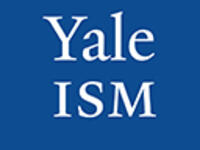
James Taylor, tenor
Stephen Stubbs, lute
Like as the Lute
Music of Morley, Johnson, Danyel, Campion, Lawes, Rosseter, and Dowland
SATURDAY, FEBRUARY 2 | 8 PM
MARQUAND CHAPEL
Part of the Faculty Artist Series of Yale School of Music.
With an extensive repertoire ranging from the Renaissance to the twenty-first century, tenor James Taylor devotes much of his career to oratorio and concert literature. One of the most sought-after Bach tenors of our time, he performed the St. Matthew Passion for his debut with the New York Philharmonic under Kurt Masur. His career has taken him throughout the United States, South America, Japan, Israel, and to virtually all the major concert halls of Europe with conductors such as Rilling, Harnoncourt, Herreweghe, Jacobs, Suzuki, Koopman, Labadie, Welser-Möst, Nézet-Séguin, and Christophers. His artistry has been documented on more than thirty professional CD and DVD recordings for labels such as Sony, Hänssler, harmonia mundi, and Naxos. He joined the Yale faculty in 2005 and serves as adviser for the voice program in Early Music, Oratorio, and Chamber Ensemble. B.Mus. Texas Christian University; Master’s Diploma, Hochschule für Musik, Munich.
Seattle native Stephen Stubbs was raised with an innate love of music and music-making. Initially, his passions lay equally in “early music” and the twentieth century avant-garde, taking first a degree in music composition. At the same time, he learned to play keyboard and plucked instruments, specializing in the principal Baroque accompanying instruments, harpsichord and lute. These specialties led him to further study in Europe, and a 1976 debut at London’s Wigmore Hall. By this point, Stubbs’ career in early music – both as an active scholar and a performing musician – was in the ascendant. His research and performing life on the lute, citarrone, and Baroque guitar helped re-establish these plucked continuo instruments within the soundscape of Baroque music; in 1980 they also landed Stubbs a post as professor of lute (and of performing practice) at the Hochschule der Künste, Bremen.
1987 was a watershed year in Stubbs’ life and in the history of the early music revival. For that year’s Bruges Early Music Festival, Stubbs directed a production of Stefano Landi’s opera La Morte d’Orfeo. The success of this production launched Stubbs as one of the most called-upon directors of early opera performances, and spun off the highly successful ensemble Tragicomedia. The group at its core consists of Stubbs and two others of the best early continuo players in the world: harpist Andrew Lawrence-King and lirone virtuoso Erin Headley. Together as Tragicomedia, the three have formed the core of major productions of all three surviving operas of Claudio Monteverdi, Francesca Caccini’s Ruggiero, Sartorio’s L’Orfeo, Stefano Landi’s Orfeo, and the opera Orfeo of Luigi Rossi. Their performances have included every major European and American early music festival and have used collaborations with such performers as Paul Hillier and Theatre of Voices, William Christie and Les Arts Florissants, Philippe Herreweghe and La Chapelle Royale, and a new partnership with lutenist Paul O’Dette. The group has toured three continents, released over 20 CDs, and received an Edison Award in 1994 for a Monteverdi madrigal program. In 1998, Stubbs founded yet another ensemble, the late-Baroque orchestra Teatro Lirico.